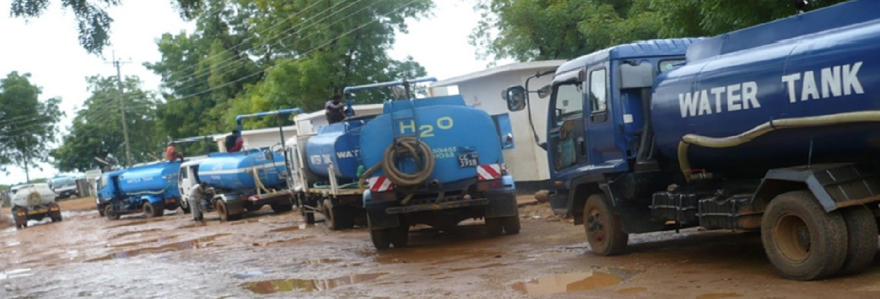The Juba City Council Authorities announced on Thursday that the price of water sold in residential areas by tankers would be increased with immediate effect.
The directive, signed by Canon Martin Simon Wani, CEO of the Juba City Council, states that water tankers will now supply water to the residential areas of Juba at 1,300 SSP per barrel, compared to the previous rate of 800 SSP set by the previous administration.
The directive also includes instructions for the security organs to protect the water suppliers from harassment, as well as a direction for the National Security and the Criminal Investigation Department of the police to collaborate with the Water Tankers Association. However, the announcement does not provide any specific reasons for the sudden increase in water prices.
In April, the water tankers had already raised the price of water from 1,000 SSP to 1,500 SSP, citing the devaluation of the local currency against the dollar. Subsequently, in June, the former Mayor of Juba City, Michael Lado Allah-Jabu, issued an order directing tankers distributing water to reduce prices for residents to 800 SSP.
However, this move resulted in a shortage of water in many residential areas as the water tankers protested against the decreased prices.
Speaking to Radio Tamazuj, Ajueny Sam Maduk, a resident of Juba City, expressed concerns about the increase in water prices, stating that it would negatively affect the livelihoods of the city’s residents.
“The standard of living in Juba is not adequate for the majority of the people. Most residents are either unemployed or underemployed, with salaries ranging between 30,000 and 50,000 SSP or 100 dollars,” Ajueny said. “Considering transportation costs and other expenses for a decent standard of living, the 100 USD is insufficient. Water is a natural resource, and it is unfair that we must buy it at such a high price.”
Ajueny further pointed out that the increased cost of water would have a significant impact on households, especially for those with five members, who could end up spending 39 dollars per month on water alone.
Ajueny called on the government to provide water to the residents of Juba at subsidized prices. “The government should help its citizens by providing more water tankers to serve the communities of Juba who cannot afford the high prices charged by commercial water tankers,” Ajueny asserted. “Water should be treated as a public service rather than a business. The government should set a fixed price of 500 SSP for a drum of water, which can sustain the water tank owners in fuelling their trucks. Most importantly, water should be made free for all citizens.”
Deng Dau, a resident of the Sherikat suburb of Juba, also expressed concerns about the water price increase, stating that it would further worsen the living conditions of the citizens, which are already dire. “The increment in the price of a drum of water in Juba is unprecedented. Many South Sudanese are unemployed and struggling to make ends meet. It is hard to afford basic necessities like food, and now water prices have gone up. The government should investigate the cause of this increase and address it, especially if it is related to fuel costs,” Dau said.




